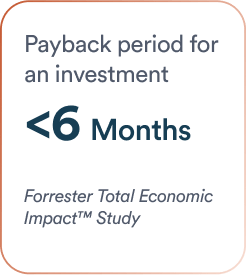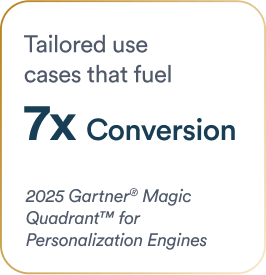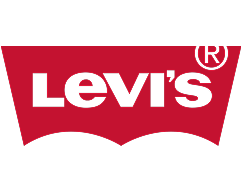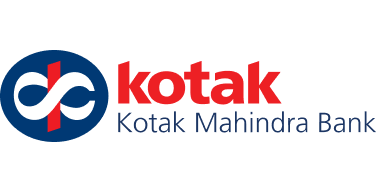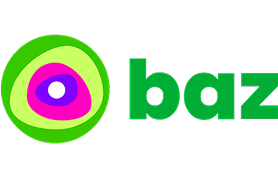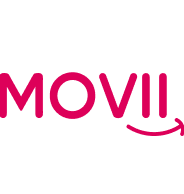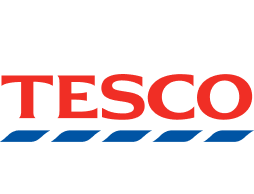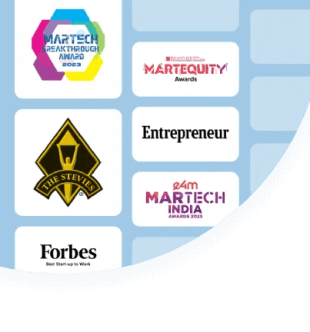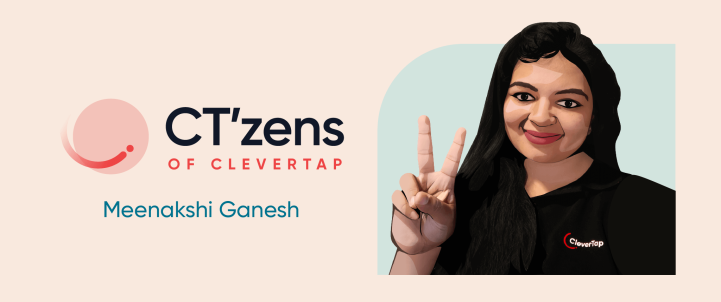Everyone has a story waiting to be heard. We’re highlighting some of the amazing stories from within CleverTap — from our very own CTzen’s — because we believe in the amazing people we work with everyday and want to share the exciting work culture that we’ve built together. Presenting: the CTzen’s of CleverTap.
Meenakshi Ganesh: In Her Own Words
Pressures of My First Job
Without false modesty, I can comfortably state that I was a high achiever nearly all my student life. I graduated with honors from two of India’s best colleges, got straight A’s, participated actively in extracurricular activities, took the stage for public speaking and music, and was a student representative. I was competitive — and anything less than the best seemed like a personal failure.
When I got my first job, I was the only recruit from my college for my company that year. Surprisingly, instead of self-validation, a weird kernel of self-doubt was sown. I started thinking maybe I didn’t truly deserve the job. I felt like I was just lucky to have gotten the job because they had to select someone. I compared myself negatively with peers who joined from other colleges. In my desire to prove myself worthy of my selection, I put in 14-16 hours of work every day. On weekends and holidays, I would find myself thinking about work. I was constantly chasing perfection, beating myself up for perceived failures.
The better I did, the more insecure I became in maintaining or surpassing my own achievements. Instead of making me happy and feeling rewarded, work stressed me out. Eventually, the constant pressure I was putting on myself took its toll. I was physically unhealthy and mentally exhausted. I was finally forced to give up the job that I gave my best to.
Challenging Long-held Perceptions
On and off for several years, I continued to suffer from inexplicable self-doubt, convinced that I didn’t actually earn or deserve my accomplishments. Then, equally inexplicably, things just fell into place. In 2013, I made a conscious choice to step away from the professional world to start a family. Raising my son Samriddh has been perhaps the most rewarding and yet, ironically, the most under-appreciated experience of my life.
Two years later, when I decided to return to the corporate world after my maternity break, I got a rude shock. I discovered that suddenly, my many years of professional experience and expertise were overshadowed by the “gap” in my resume. After facing rejection after rejection, not even getting shortlisted for interviews, and being constantly questioned about my “break” in the few interviews I did make it to, my confidence began taking a dip. I would not even apply for jobs unless I was overqualified for them. I missed out on many good opportunities because I was afraid to expose myself to scrutiny and fall short.
It was when I was at my lowest that I realized that I was being unfairly apologetic for a choice I had made for myself. I decided to own my break and position it the way I viewed it: as the Co-Creator and CEO of Samriddh, a life-changing joint venture with my husband. I listed my roles and responsibilities as a mother, the highlight being able to experience my son’s once-in-a-lifetime series of “firsts,” my achievements being the immeasurable patience and empathy I developed along the way — which have since helped me succeed personally and professionally where others may have given up.
This simple change transformed not just my resume and the way I viewed myself, but also challenged long-held perceptions of motherhood and maternity breaks in the minds of the organizations I interviewed with.
Back to the Grind
I soon found a job tailor-made for me, one that gave fair consideration to my past experience and encouraged me to grow in many different ways. However, my self-doubts and insecurities didn’t magically disappear. I took on more than I was expected to do, without any additional benefits, and plunged straight back into 14-hour workdays. I worked hard and built a strong reputation for myself within the organization, in my domain and with my customers. But I was often battling feelings of inadequacy and being out of my depth. I was afraid to experiment and my creativity suffered.
I was driven and assertive when it came to achieving my work goals. Colleagues considered me a reliable, knowledgeable resource. But I did not fight for myself. During appraisals, I was hesitant to articulate my wins and almost ashamed of attributing them to the work I had done. I under-valued myself. My male peers asked for and received the right compensation and pay hikes that I did not even think to ask for, and ended up selling myself short when no one else did.
Motivations for Excellence, Poison of Self-doubt
It took me nearly a decade to articulate and recognize these thoughts as self-destructive and harmful. What I considered as motivations for excellence were sadly laced with the poison of self-doubt. In 2017, a little research and discussion with friends helped me realize that I was actually suffering from Impostor Syndrome.
Impostor Syndrome reflects a belief that you’re an inadequate and incompetent failure despite ample evidence that you’re skilled and quite successful. It’s this strange, irrational fear of being exposed as a fraud for your accomplishments. It is a voice of self-doubt and inadequacy that rings in your own mind.
Nearly 70% of professionals battle this syndrome at some point in their careers. Ironically, this affects high-achievers the most, especially women. Our environment, conditioning, and unconscious biases play a big role in our definitions of self-worth, success, and failure.
Once I had recognized and acknowledged that I did have a problem, it actually lifted a load off my mind. I finally accepted that it’s okay to not be okay. Changing your mindset is a journey. It is not a 1-stop destination, nor can it be achieved overnight. But it starts with acknowledgment and continues with action.
Over the next few years, I worked on my inner voice, began focusing on excellence over perfection, and started owning my wins. I picked up hobbies that helped me deal with the stress. I explored my creative side through poetry and writing. I started a Lean In circle — a community where I connected with other like-minded women who inspire me every day. I began practicing gratitude and invested in experiential learning like ceramic pottery, which gave me a sense of calm.
Camaraderie, Trust, and Renewed Joy in Work
My renewed sense of self was reflected in the pace and the growth trajectory of my career. I was fortunate to join CleverTap two years ago and own the Customer Success Practice in APAC. It’s been a pleasure building the team and watching it grow from strength to strength. I am deeply appreciative of the culture and people here. The environment at CleverTap is open, and empathy is a core value. Positive collaboration and working towards a common goal foster camaraderie and trust, making work a joy.
All throughout this journey, I have leaned on my support system to strengthen my positive affirmations. My husband Sourav has been my lighthouse and my cheerleader for over fourteen years. He reminds me constantly: “No one else is second-guessing your ability. Neither should you.” The biggest epiphany I have had in my journey of self-discovery is this: Your opinion of yourself is the only one that matters. You will get what you think you deserve. The world is not holding you back, you are. So have faith in yourself and you’ll be amazed how the world follows.
Let’s Work Together
Ready to help build the future of mobile? Check out the career opportunities at CleverTap.
CleverTap 
CleverTap is an All-in-one Customer Engagement Platform enabling brands to maximise Customer Lifetime Value
Free Customer Engagement Guides
Join our newsletter for actionable tips and proven strategies to grow your business and engage your customers.



